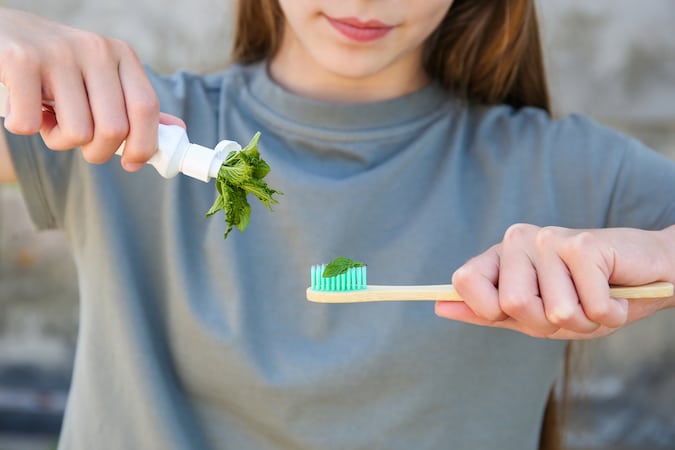
Understanding and Managing Bad Breath Naturally

Bad breath, or halitosis, is a common condition with numerous causes, from diet to medical issues. This guide provides effective ways to prevent and manage bad breath through lifestyle changes, natural remedies, and professional treatments. At SelfGood , we offer guidance on health solutions that empower you to manage common issues like halitosis and maintain confidence in your well-being.
Bad breath can impact confidence and social interactions, but it’s manageable with the right approach. From understanding the causes to applying easy solutions, this article will guide you through steps to improve your breath and oral health.
Key Takeaways:
- Causes of bad breath include poor oral hygiene, dietary factors, and medical conditions.
- Regular dental hygiene and hydration can help prevent bad breath.
- Professional treatments and natural remedies are available for managing persistent halitosis.
Causes of Bad Breath

Several factors contribute to halitosis, ranging from daily habits to underlying health conditions. Understanding these causes can help in finding the right solution for fresh, confident breath.
Poor Oral Hygiene
Food particles left in the mouth can lead to bacterial buildup, causing foul odors. Plaque buildup on the teeth and gums also contributes to persistent bad breath. Regular brushing and flossing are essential to prevent bacteria from breaking down leftover food particles and causing unpleasant smells.
Diet and Lifestyle Factors
Certain foods, especially garlic and onions, contain sulfur compounds that contribute to bad breath.Smokingandalcohol consumptionalso dry out the mouth, which reduces saliva production and allows bacteria to thrive. Quitting smoking and limiting alcohol can significantly improve breath and overall health.
Medical Conditions
Persistent bad breath can sometimes signal a medical condition.Sinus infections,tonsillitis,GERD(gastroesophageal reflux disease), anddiabetescan all contribute to halitosis. For example, GERD can cause stomach acid to enter the mouth, creating an unpleasant odor. Addressing these underlying health conditions is crucial to managing bad breath effectively.
Dry Mouth and Dehydration
Saliva naturally cleanses the mouth and removes odor-causing particles. When the mouth is dry, usually due to dehydration or certain medications, bacteria grow more freely. Staying hydrated helps keep saliva production steady, supporting natural cleansing and fresher breath.
Recognizing Bad Breath
Identifying bad breath is often tricky for the person experiencing it. A reliable self-check involves licking the inside of your wrist, letting it dry, and smelling it. Another option is scraping the back of your tongue with a spoon and checking for odor. However, consulting a friend or a dentist is the best way to receive honest feedback.
The Science Behind Breath Odor
Bad breath originates from volatile sulfur compounds (VSCs) released by bacteria in the mouth. When bacteria break down proteins, they produce VSCs, creating a noticeable odor. Thetongueis especially prone to bacterial growth, which is why cleaning it is essential. Other compounds, such as ketones, can also contribute to bad breath, particularly in people following low-carb diets or experiencing unmanaged diabetes.
Maintaining Oral Hygiene to Prevent Halitosis
Oral hygiene is crucial in preventing bad breath. Here are some simple steps to maintain fresh breath and keep your mouth clean:
- Brushing and Flossing: Brushing at least twice a day and flossing daily removes food particles and plaque that harbor bacteria.
- Mouthwash: Antibacterial mouthwashes can help reduce bacteria. Look for alcohol-free options to prevent drying.
- Tongue Scrapers: Scraping the tongue daily can help remove bacteria and prevent odor buildup.
Dietary and Lifestyle Adjustments
Certain foods and lifestyle choices can aggravate or reduce bad breath. Here are tips to keep your breath fresh and improve overall health:
- Avoid Trigger Foods: Garlic, onions, and spicy foods can increase bad breath, so avoid them when possible.
- Hydrate: Drink plenty of water to keep your mouth moist and saliva flowing.
- Quit Smoking and Limit Alcohol: These habits dry out the mouth and increase odor-causing bacteria, so reducing or quitting can have a noticeable impact.
Medical and Professional Solutions
For chronic halitosis, a dental or medical professional can help identify the cause. Dentists may prescribeantibacterial mouthwashesor antibiotics if an infection is present. They may also recommend specialized treatments for issues likesinus infectionsorGERD, which can exacerbate halitosis. Seeking professional advice ensures that you address any underlying medical conditions contributing to bad breath.
Home Remedies for Fresh Breath

Natural remedies can be effective for keeping your breath fresh between meals and when a toothbrush isn’t available:
- Parsley and Mint: Both parsley and mint are rich in chlorophyll, a natural deodorizer, making them great for freshening breath.
- Green Tea: This tea has antibacterial properties that can reduce odor-causing bacteria.
- Probiotics and Yogurt: Studies suggest that probiotics, particularly in yogurt, may help balance bacteria levels in the mouth and gut, which can contribute to fresher breath.
- Oil Pulling: This traditional remedy involves swishing coconut or sesame oil in the mouth for a few minutes to remove bacteria and improve oral health.
Tips for Preventing Bad Breath
Prevention is key when it comes to halitosis. Here are some practical tips to keep your breath fresh:
- Regular Dental Checkups: See your dentist at least twice a year for cleanings and checkups to keep oral health in top shape.
- Daily Oral Hygiene Routine: Brushing, flossing, and tongue scraping should be part of your daily routine.
- Mindful Eating and Drinking: Limit foods and drinks that can dry out the mouth or produce strong odors.
Debunking Myths About Halitosis
Several misconceptions surround bad breath. Here are some common myths:
- Myth 1: Mouthwash Cures Bad BreathMouthwash provides temporary relief but does not address the root causes of bad breath. Regular oral hygiene and identifying the underlying issue are more effective.
- Myth 2: Chewing Gum and Mints Cure Bad BreathWhile mints and gum mask bad breath, they only provide temporary relief. Sugar-free gum can stimulate saliva, which helps clean the mouth.
Psychological and Social Impact of Bad Breath
Bad breath can affect confidence and social interactions, leading to feelings of self-consciousness. Addressing halitosis can significantly improve one’s self-esteem and quality of life, emphasizing the importance of good oral health.
Final Thoughts
Halitosis can be managed effectively with proper oral hygiene, dietary adjustments, and natural remedies. Understanding the causes of bad breath and implementing simple, consistent practices can lead to noticeable improvements. If bad breath persists, consult a healthcare provider to address potential underlying health conditions. Remember, fresh breath is an essential part of a healthy and confident life.
Frequently Asked Questions:
What is the main cause of bad breath?
The primary cause of bad breath is bacteria in the mouth breaking down food particles, which produces odor-causing compounds. Poor oral hygiene, certain foods, and dry mouth are other common factors.
Can bad breath indicate a serious health problem?
Yes, persistent bad breath can be a sign of conditions like GERD, diabetes, or sinus infections. Consulting a healthcare provider can help identify any underlying issues.
How often should I see a dentist for bad breath?
Regular dental checkups every six months are recommended. However, if you experience persistent bad breath despite good hygiene, consider seeing your dentist sooner.
Sources:
- American Dental Association . “Oral Health Topics: Bad Breath (Halitosis).”
- Mayo Clinic Staff . “Halitosis: Causes and Treatment.”
- National Institute of Dental and Craniofacial Research . “Halitosis Prevention.”



